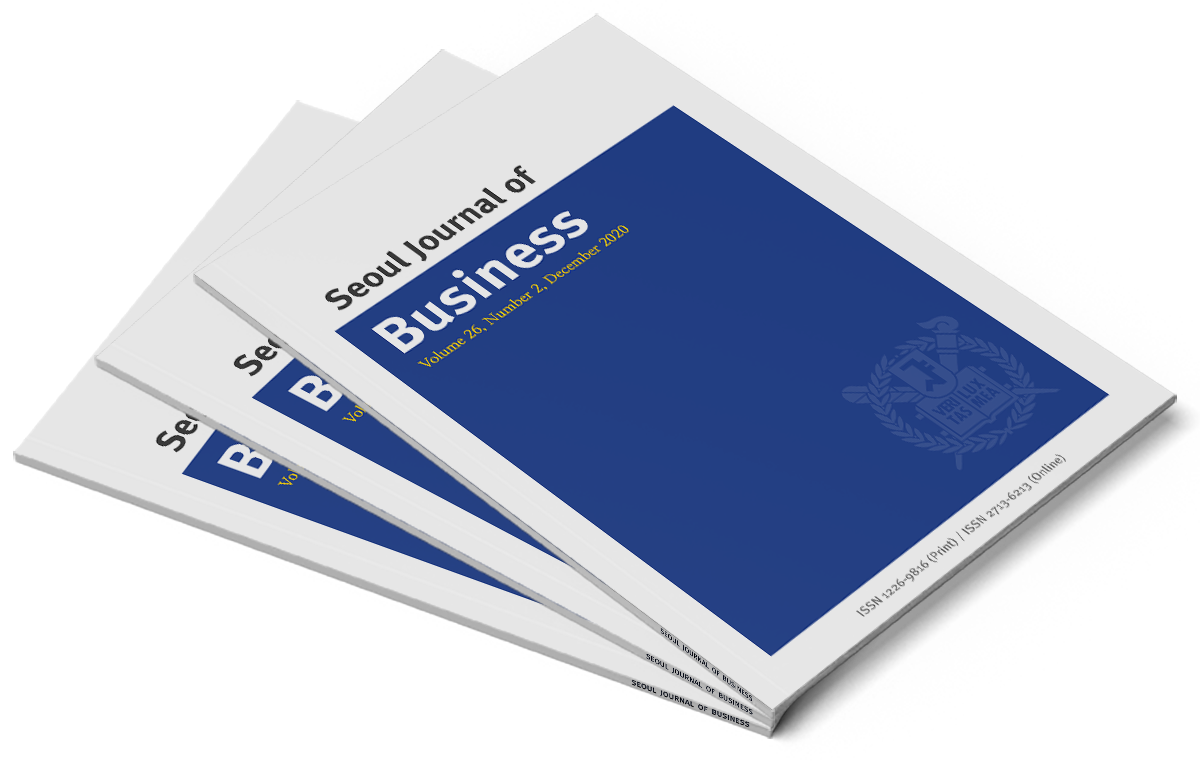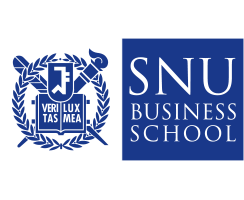Recent Issues
Vol.18/2 (2012, December)
An Exploratory Meta-Analysis of Gender Differences in the Evaluation of Advertisements
Author JUNG-CHAE SUH
Keywords Gender Differences, Self vs Others, Visual vs. Verbal, Meta- Analytic Test, Advertising, Brand Attitude, Purchase Intention, Cognitive Resource Matching
Download
Although some studies have shown gender differences in the evaluation
of messages in advertisements, these differences have not been strongly
supported by empirical evidence. Using a meta-analytic technique, this
study analyzes the effect sizes of the existing studies on this topic to
determine which factors vary the results of the studies..
The results of the exploratory analysis for brand attitudes toward
advertisements support both the vividness theory and the sex-role and
social dominance theories. However, for purchase intentions, the results
do not support both theories. Women show more purchase intentions than
men in the evaluation of advertisements, regardless of the message type.
Vol.18/1 (2012, June)
The Impact of Horizontal Merger Between Manufacturers on Channel Pricing Behaviors
Author KYUNG JIN KIM, INSEONG SONG
Keywords pricing, channel interaction, horizontal merger, new empirical industrial organization
Download
This paper studies the impact of a horizontal merger between two
manufacturers on channel pricing behaviors. We utilize the new empirical
industrial organization approach in which demand and supply side
behaviors are derived from economic theories. We apply our model to a
market data set obtained from the toilette paper category in which a major
merger between Kimberly Clark and Scott happened. We find the impact
of the merger on retailer-manufacturer interaction is heterogeneous across
manufacturers. The merged manufacturer turns out to become tougher
in its pricing. However, we do not find any evidence that the merge makes
other manufacturers tougher.
Vol.18/1 (2012, June)
I Will Like It Later But Not Now: The Roles of Temporal Distance and Guilt in Hedonic Product Evaluation
Author KIWAN PARK,YOUNGRONG KIM
Keywords construal level, guilt, hedonic consumption, temporal distance
Download
How and why does temporal distance influence consumers’ evaluation
of future hedonic consumption? Drawing upon the construal level theory,
we propose that guilt is a lower-level construal than hedonic pleasure and
becomes salient in the immediate versus distant consumption. As such, we
hypothesize that consumers evaluate future hedonic consumption less positively
as temporal distance becomes smaller. We find that temporal distance
influences product evaluation when the product is framed as a hedonic option,
but not when it is framed as a utilitarian one (study 1). The effect of
temporal distance is mediated by anticipated guilt (study 2).
Vol.18/1 (2012, June)
Markov Model of Word-of-Mouth Effect and Stock Market Participation
Author KUAN-HUI LEE
Keywords Markov chain, Word-of-mouth, pleasure-in-talk, stock market participation
Download
The question of determinants of participation of stock market has long
been a central question to financial economists. Most notably, Hong, Kubik,
and Stein (2001) argue that social interactions affects the investment
decision of potential stock market investors through two popular channels:
word-of-mouth and pleasure-in-talk about stock market. In this paper, I
extend Hong et al.’s model of social interactions to incorporate different effects
of these two channels on stock market participation, conditioning on
current market situation. The idea is intuitive: When potential investors observe
current bull (bear) market, word-of-mouth and pleasure-in-talk effect
would work positively (negatively) toward stock market participation due to
increased number of peers who benefitted (lost their wealth) from bull (bear)
market situation. In Markov chain process framework, I model stock market
participation depending on current market situation and discuss empirical
implications of my model.
Vol.18/1 (2012, June)
A Study on Global Orientation in New Product Development among Small and Medium-Sized Firms
Author INSIK JEONG,JOOYOUNG KWAK,DONG JIN LEE
Keywords Global orientation in new product development, Customer orientation; Long-term focus
Download
While many small and middle-sized enterprises are entering into emerging
markets to satisfy diverse consumer needs, limited attention has been
given to global orientation in new product development among these small
and middle-sized enterprises in emerging markets. In order to find the
antecedents and consequences of this managerial value, we have developed
and tested a model of global orientation in new product development
among small and middle-sized enterprises. Specifically, we hypothesize that
customer orientation and long-term focus have a positive influence on the
global orientation among small and middle-sized enterprises, which in turn
has a positive effect on performance. Data collected from 482 firms supports
the model. Theoretical and managerial implications are discussed.
Vol.18/1 (2012, June)
An Empirical Assessment of A-Share IPO Under-Pricing in China
Author CHAN-HYUN SOHN,ALBERT K TSUI,FENG ZHANG,ZHAOYONG ZHANG
Keywords Chinese stock market, A-share IPO, Under-pricing
Download
This paper investigates the under-pricing and long-run performance of
230 A-share IPOs issued in the Chinese markets using comparable firm multiples.
We find that A-share IPOs are severely under-valued by issuers
and underwriters at the offer, but over-valued by investors on the listing
day. Both contribute to the severe under-pricing of IPOs in China. Our findings
are robust across stock exchanges, classification of firms, criteria for
choosing matching firms; absence of CSRC regulation and B-share market
prices, respectively. The results also show that those over-valued IPOs by
investors on the listing day under-perform those under-valued IPOs in the
long-run.
Vol.18/1 (2012, June)
Corporate Governance, Financial Slack and Firm Performance: A Comparative Study between US and UK
Author SANGHOON LEE
Keywords Corporate Governance, Financial Slack, Organizational Slack, GMM Regression
Download
This paper presents an empirical analysis of the relationship between
financial slack and firm performance using a large panel data set of the U.S.
and the U.K. firms. Conducting dynamic GMM regressions, the empirical
analysis finds that there are the negative relationship between slack and
performance in the U.S. and the positive relationship in the U.K. These
empirical findings support the hypothesis that the relationship between
slack and performance differs across corporate governance systems. The
novelty of the paper lies in its demonstration of the conclusion on the role
of corporate governance in the relationship between slack and performance
as well as the fact that we could obtain the result by comparing the two
countries—the U.S. and the U.K—that have been regarded as belonging to a
single corporate governance system.
Vol.17/2 (2011, December)
Environmental Scanning Behavior of the Top Managers: A Regulatory Focus Model
Author Theresa S. Cho
Keywords Regulatory focus theory, top management teams, managerial cognition, diversity
Download
Drawing on regulatory focus theory (Higgins 1997), I propose a model of firm’s environmental scanning behavior. Specifically, I explore a firm’s environmental scanning behavior as a function of the motivational mindset of the firm’s top management team. Prior research has shown that diversity of the TMT’s composition has an impact on the firm’s strategic behavior. I take this premise further to suggest that: 1) a TMT’s cognitive diversity is likely to differ in the collective mindset in their degree of promotion- or prevention-focus; 2) this differential mindset is likely to mediate the processing style of the environment, and subsequently differentially drive the firm’s strategic choice.
Vol.17/2 (2011, December)
CEO Inside Debt and Costs of Bank Debt Financing
Author Joong Ho Han
Keywords inside debt, managerial agency, costs of debt, debt contracts, loan terms
Download
This study examines the role of CEO’s pensions and deferred compensations by exploring their impacts on pricing and non-pricing contract terms of bank loans. CEO’s inside debt, defined as the sum of defined benefit pension and deferred compensations, pays fixed amounts at periodic intervals. We find that higher inside debt holdings significantly reduce both loan rate spreads and demands for collateral. We also find that such effects are particularly pronounced under weak external governance proxied by a degree of anti-takeover defenses. Overall, our results support the idea that debt-like incentives for CEOs increase convergence of interests between managers and creditors.
Vol.17/2 (2011, December)
The Effect of Local Holdings on Audit Policy and Outcomes
Author Bok Baik
Keywords none
Download
This paper examines whether local block holdings are associated with audit policy and outcomes. For local investors are long-term investors and they tend to invest a larger portion of their total investment in local companies, I posit that local block holders will be dedicated investors and have strong incentives to monitor management. Consistently I find that companies with local block holders are less likely to have unclean/going-concern opinions, and more likely to have long-term relationships with auditors. In addition, although I find weak evidence that the existence of local block investors affects audit fees, I do not observe any significant difference of audit fees between firms with local block holdings and firms with nonlocal block holdings. Overall, this paper shows that information advantage of local investors can have real effects on audit process through monitoring activities.
Seoul Journal of Business

ISSN 1226-9816 (Print)
ISSN 2713-6213 (Online)
ISSN 2713-6213 (Online)


